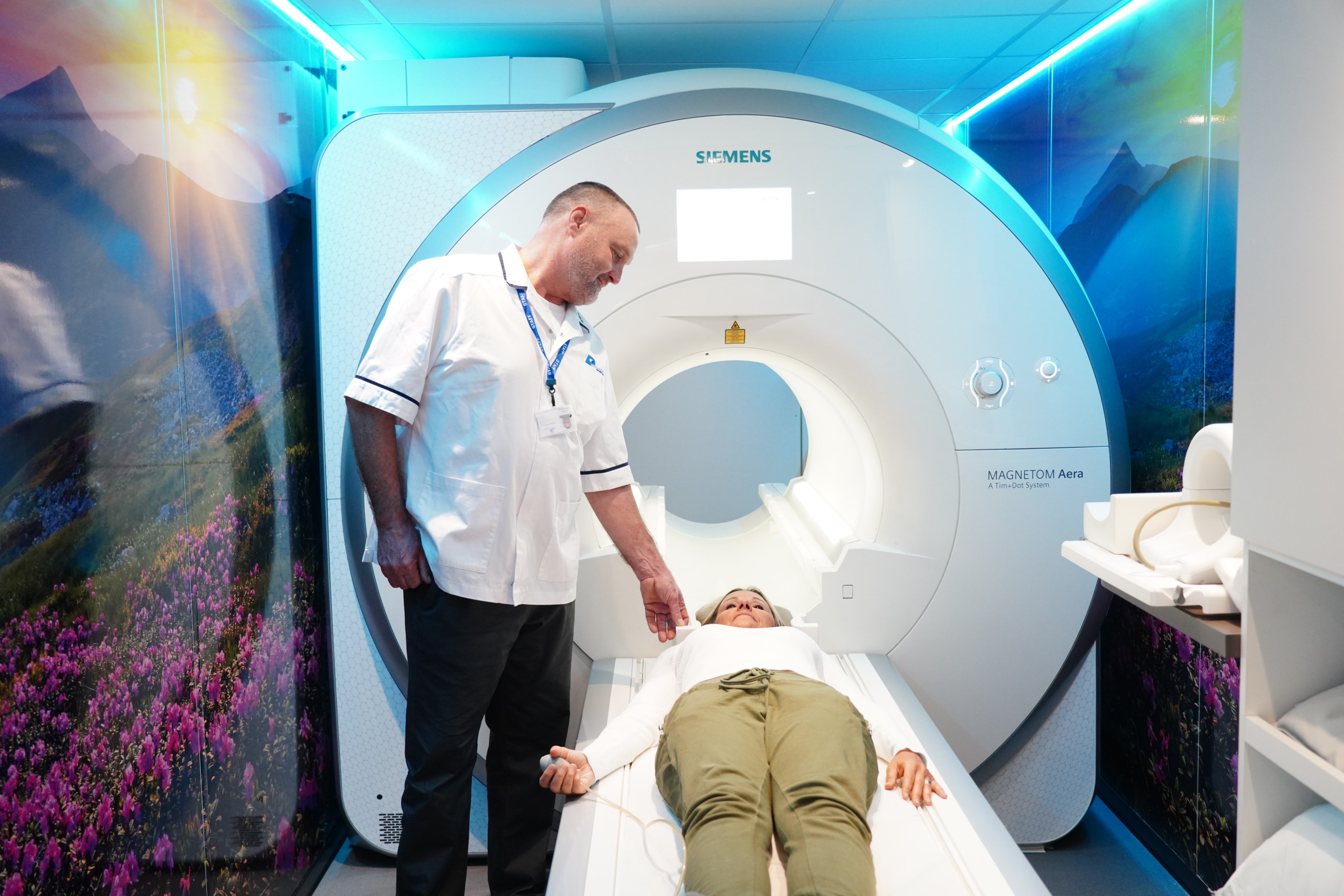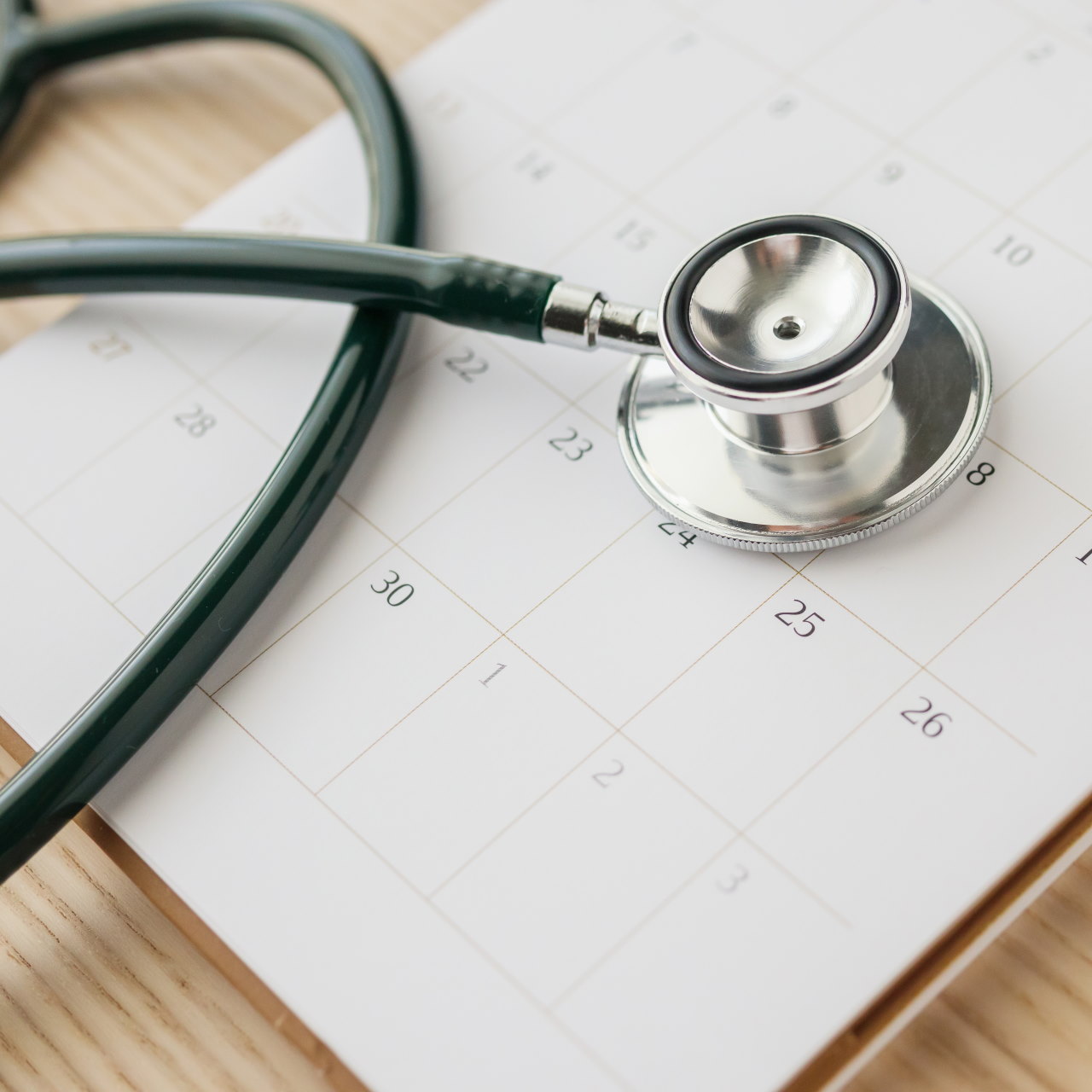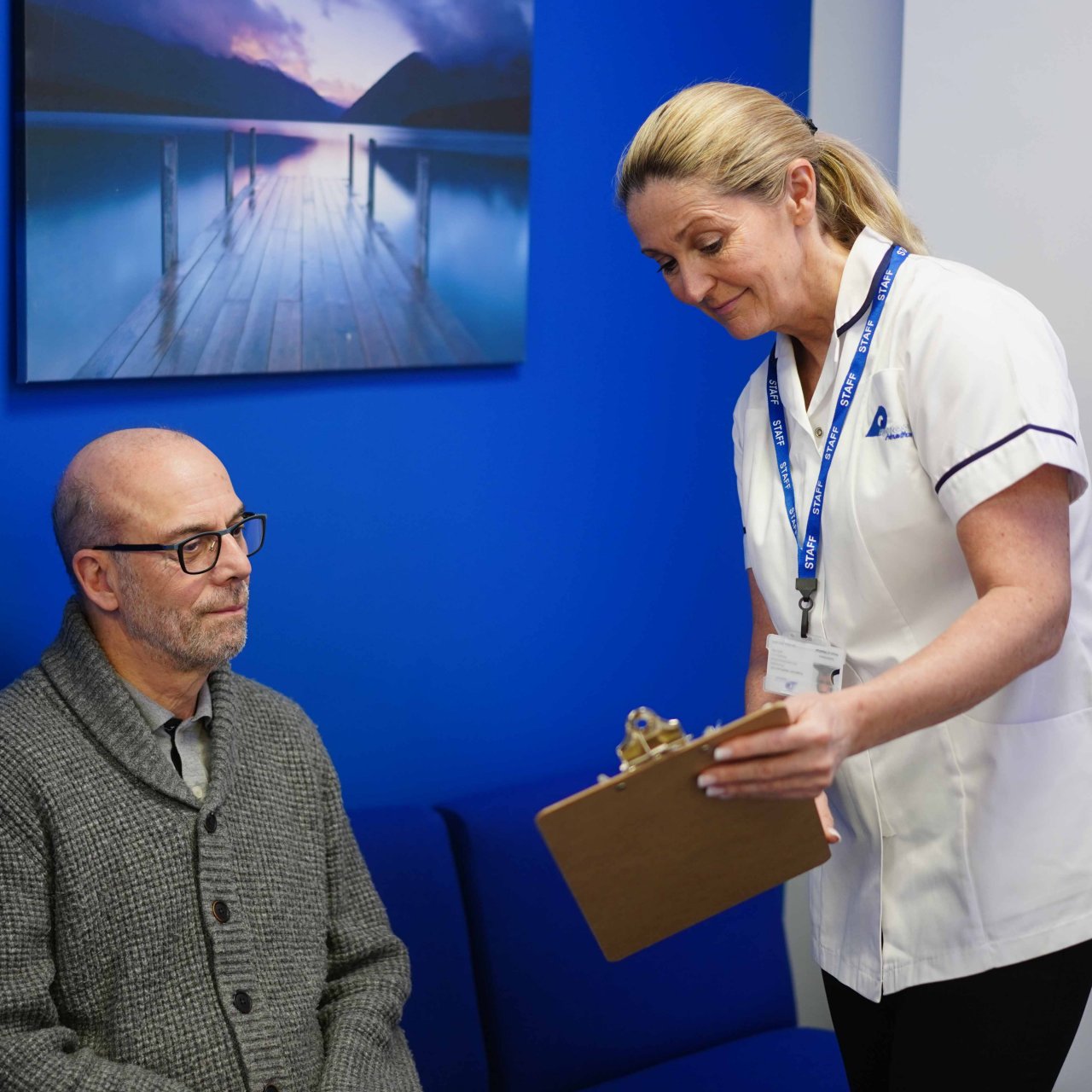As a non-invasive, painless and safe procedure, MRI scans have become an important widespread imaging tool since introduction and are commonly used by the NHS.
The NHS supports the need to develop improved access to diagnostic tests as part of the drive to reduce waiting times and improve choice options for patients. The need to develop community based diagnostic services is supported by the Royal College of Radiologists, Royal College of General Practitioners and Sir Mike Richards Report (DIAGNOSTICS: RECOVERY AND RENEWAL) as part of a service strategy to improve access to tests and ensure these tests are delivered at the right stage of the patient care pathway.
Key Service Outcomes
It is envisaged that a Direct Access MRI service will enable GPs to achieve the following benefits:- Offering patients rapid access to appointment by increasing capacity and choice and offering services closer to home.
- Timely access to diagnostics for GPs and their patients to avoid the need for unnecessary referral to secondary care.
- A reduction in inappropriate referrals through education and feedback to the referrer.
- A reduction in unnecessary and duplicated diagnostics.
- Better access and availability with evening and weekend appointments in response to patient demand.
- A full integrated system to the NHS Spine offering directly bookable services on e-RS, achieving a fully managed referral pathway.
- A reduction in waiting times for appointments.
- Accurate, clear and timely imaging and narrative reports to the referrer.
- Accurate and clear activity and KPI reporting including performance and quality to the commissioner.
- High levels of satisfaction from patient accessing the service.
- High levels of satisfaction from GPs referring into the service.
Diagnostic Healthcare has a long-standing track record of delivering MRI from static clinic locations and from mobile and modular facilities. This is a consultant led service to ensure that all the clinical support is well embedded in the community setting. The MRI service is delivered by highly trained Radiographers who are registered with the Health and Care Professions Council (HCPC) and follow a Continuing Professional Development (CPD) programme. Diagnostic Healthcare continuously invests in the latest MRI technology to provide the best experience for its patients and staff.
The MRI service is commissioned as an “end to end” service making it as easy as possible for the referring clinician. The care, reporting and clinical pathways are developed and agreed locally to fit into the local Integrated Care Systems (ICSs).
Frequently asked questions
An MRI scan can be used to examine the brain for:-
- tumours
- multiple sclerosis
- changes that have occurred after bleeding in the brain to discover if the brain tissue has suffered a lack of oxygen after a stroke
Examining the heart and large blood vessels in the surrounding tissue make it possible to detect:-
- heart defects that have been developing since birth
- changes in the thickness of the muscles around the heart following a heart attack
An MRI scan may be used to examine:-
- the spinal chord
- joints
- soft tissue parts of the body
- female pelvic problems
- ailments of the gastro-intestinal tract
- certain ear, nose and throat problems
- musculoskeletal problems
The scan takes about 25-40 minutes.
For most people, there is no danger associated with having an MRI scan. It is, however, very important that you tell your doctor and our team if you have any metal implants in your body. The Radiographer will therefore ask for your relevant medical history and whether you have any of the following:
- pacemakers
- implanted insulin pumps
- aneurysm clips
- vascular coils and filters
- heart valves
- ear implants
- surgical staples and wires
- shrapnel
- bone or joint replacements
- metal plates, rods, pins or screws
- contraceptive diaphragms or coils
- penile implants
- permanent dentures
It is also important to tell a member of the staff if you are pregnant or if you believe there is a possibility you are pregnant.
A Radiologist, who has been trained in MRI scan analysis, reviews the results of your MRI scan. The results cannot be given to you on the day because the analysis takes a relatively long time and can include a comparison with any previous MRI scans.
It is important that you remain still during your MRI scan as any movement causes the pictures to blur. This then makes it difficult for the Radiologist to interpret the scan results. In addition, the MRI scan is often focused on a specific part of the body. If you move, the area that is being examined may no longer be in the correct position.
Both MRI and CT scans provide detailed pictures of areas of the body that used to be inaccessible by conventional X-rays. They use a sophisticated computer system to make cross-sectional pictures of areas of the body being scanned. The major difference between CT and MRI, is that an MRI uses a large magnet and radio waves to produce images, whereas a CT scanner uses X-rays. There is, therefore, no exposure to X-rays in an MRI scan.
Because MRI scanning is very sensitive to movement during the scanning procedure, CT scanning can be preferable in some circumstances if the patient is unable to stay still.
The more information that our Radiologist has when he/she reviews the results of your MRI scan, the more specific the interpretation will be. Correlations with other MRI scan results are helpful.
As there is little room inside the tunnel, people who suffer from severe claustrophobia sometimes have problems with being in the MRI scanner. Please do consult with your referrer before the day of your appointment. If necessary, you may be prescribed medication to calm you down before the scan.
If our Radiographers know you are nervous, they will take extra care in making sure you are comfortable during your MRI scan. The Radiographers can see you at all times through a large window and a television monitor and will also be able to talk to you and listen to you through an intercom system during the scan.
Keeping your eyes closed throughout the scan can sometimes help.
It is recommended that you dress in light cotton clothing which does not contain metal such as zippers, metal buttons etc. You will be offered a cotton robe which you can wear for the examination if you arrive with inappropriate clothing.
You’re welcome to bring a friend or a relative with you. In special circumstances we can allow your friend or relative to accompany you into the MRI scanning room. They will have to undergo the same MRI screening questionnaire as you to make sure they are safe to enter the MRI environment.
A referral is not always required. Please contact us on 0161 929 5679/ 0330 058 4142 to discuss.








